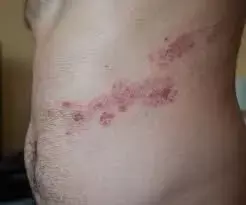- Home
- Medical news & Guidelines
- Anesthesiology
- Cardiology and CTVS
- Critical Care
- Dentistry
- Dermatology
- Diabetes and Endocrinology
- ENT
- Gastroenterology
- Medicine
- Nephrology
- Neurology
- Obstretics-Gynaecology
- Oncology
- Ophthalmology
- Orthopaedics
- Pediatrics-Neonatology
- Psychiatry
- Pulmonology
- Radiology
- Surgery
- Urology
- Laboratory Medicine
- Diet
- Nursing
- Paramedical
- Physiotherapy
- Health news
- Fact Check
- Bone Health Fact Check
- Brain Health Fact Check
- Cancer Related Fact Check
- Child Care Fact Check
- Dental and oral health fact check
- Diabetes and metabolic health fact check
- Diet and Nutrition Fact Check
- Eye and ENT Care Fact Check
- Fitness fact check
- Gut health fact check
- Heart health fact check
- Kidney health fact check
- Medical education fact check
- Men's health fact check
- Respiratory fact check
- Skin and hair care fact check
- Vaccine and Immunization fact check
- Women's health fact check
- AYUSH
- State News
- Andaman and Nicobar Islands
- Andhra Pradesh
- Arunachal Pradesh
- Assam
- Bihar
- Chandigarh
- Chattisgarh
- Dadra and Nagar Haveli
- Daman and Diu
- Delhi
- Goa
- Gujarat
- Haryana
- Himachal Pradesh
- Jammu & Kashmir
- Jharkhand
- Karnataka
- Kerala
- Ladakh
- Lakshadweep
- Madhya Pradesh
- Maharashtra
- Manipur
- Meghalaya
- Mizoram
- Nagaland
- Odisha
- Puducherry
- Punjab
- Rajasthan
- Sikkim
- Tamil Nadu
- Telangana
- Tripura
- Uttar Pradesh
- Uttrakhand
- West Bengal
- Medical Education
- Industry
Herpes zoster vaccination may mitigate risk of stroke in herpes patients

According to a recent study published in Clinical Infectious Diseases, herpes zoster vaccination may mitigate the risk of stroke in varicella-zoster virus-infected patients. Studies evaluating stroke following varicella-zoster infection are limited, and the benefit of the zoster vaccine against this phenomenon is unclear.
Chickenpox (chickenpox) is an acute infectious disease which is caused by the varicella-zoster virus (VZV), a DNA virus member of the herpesvirus group. After the primary infection, VZV remains a latent infection in the body (in the sensory nerve ganglia). Primary disease with VZV causes chickenpox.
The research was conducted by a group of research scholars to determine stroke risk 30 days after zoster infection and to evaluate the effect of zoster vaccines on stroke risk in VZV-infected patients.
This retrospective case-control study starting from January 2010 to January 2020 was conducted using nationwide patient data from the Veterans Affairs Institutional Data Warehouse.
Results of the study:
• A total of 2,165,505 patients aged 18 years and older receiving care at a Veterans Affairs facility were included in the study, of which 71,911 had a history of zoster infection.
• Zoster patients were 1.9 times more likely to develop a stroke within 30 days of infection.
• Patients with recombinant or live zoster vaccine had a reduced risk of stroke.
Thus, Ganapathi Iyer et al. concluded that patients had a significantly higher risk of stroke in the first month following their last herpes zoster infection. Getting at least one zoster vaccine was found to reduce this increased risk. Therefore, vaccination can be seen as a protective tool against the risk of sequelae after neurological infection.
Reference:
Ganapathi Iyer Parameswaran, MBBS, Bethany A Wattengel, PharmD, BCPS, BCIDP, Hubert C Chua, PharmD, Jessica Swiderek, PharmD, Tom Fuchs, PhD, Michael T Carter, PharmD, BCPS, Laura Goode, PharmD, BCPS, Kathleen Doyle, PharmD, Kari A Mergenhagen, PharmD, BCPS, BCIDP, Increased Stroke Risk Following Herpes Zoster Infection and Protection with Zoster Vaccine, Clinical Infectious Diseases, 2022;, ciac549, https://doi.org/10.1093/cid/ciac549
Dr. Shravani Dali has completed her BDS from Pravara institute of medical sciences, loni. Following which she extensively worked in the healthcare sector for 2+ years. She has been actively involved in writing blogs in field of health and wellness. Currently she is pursuing her Masters of public health-health administration from Tata institute of social sciences. She can be contacted at editorial@medicaldialogues.in.


